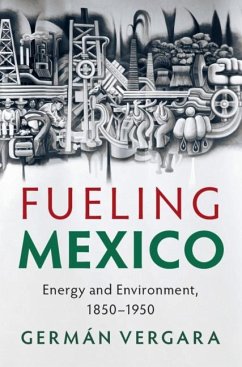Around the 1830s, parts of Mexico began industrializing using water and wood. By the 1880s, this model faced a growing energy and ecological bottleneck. By the 1950s, fossil fuels powered most of Mexico's economy and society. Looking to the north and across the Atlantic, late nineteenth-century officials and elites concluded that fossil fuels would solve Mexico's energy problem and Mexican industry began introducing coal. But limited domestic deposits and high costs meant that coal never became king in Mexico. Oil instead became the favored fuel for manufacture, transport, and electricity generation. This shift, however, created a paradox of perennial scarcity amidst energy abundance: every new influx of fossil energy led to increased demand. German Vergara shows how the decision to power the country's economy with fossil fuels locked Mexico in a cycle of endless, fossil-fueled growth - with serious environmental and social consequences.
Dieser Download kann aus rechtlichen Gründen nur mit Rechnungsadresse in A, B, BG, CY, CZ, D, DK, EW, E, FIN, F, GR, HR, H, IRL, I, LT, L, LR, M, NL, PL, P, R, S, SLO, SK ausgeliefert werden.









